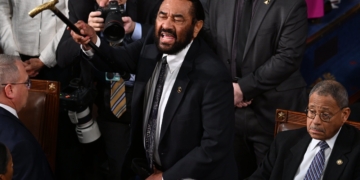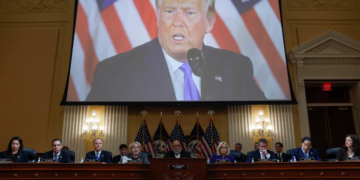A potential summit between U.S. President Donald Trump and Chinese President Xi Jinping faces uncertainty as trade disputes and fentanyl trafficking concerns overshadow negotiations. China has extended a formal invitation to Trump to meet in Beijing, but the White House has not responded. Analysts suggest that if no significant progress is made in trade talks, a lower-level meeting during the Asia-Pacific Economic Cooperation (APEC) forum in South Korea is more likely. U.S.-China talks beginning today in Madrid will focus on tariffs, export controls, and companies such as TikTok, while both sides seek to protect their economic interests. Recent U.S. sanctions have added pressure, including placing 32 entities, mostly Chinese, under trade restrictions.
China Invites Trump for Summit
The Financial Times reported that China has officially invited President Trump to meet with President Xi Jinping in Beijing, though the U.S. has not confirmed attendance. Trade negotiations remain stalled due to disagreements over tariffs and the flow of fentanyl, diminishing the likelihood of a high-level summit. Analysts indicate that both sides may settle for a lower-profile meeting at the APEC forum in South Korea in October.
Upcoming Negotiations in Madrid
A delegation led by Vice Premier He Lifeng will begin new negotiations with the United States today, continuing through September 17 in Madrid. The talks will focus on economic and trade issues, including U.S. tariffs, export control practices, and technology platforms such as TikTok. China has urged the United States to correct its “unjustified suppression of Chinese companies” and indicated it would take necessary measures to protect its legitimate business interests. U.S.-China trade tensions have intensified, reflecting a broader geopolitical struggle for technology leadership.
U.S. Sanctions and Restricted Entities
On Friday, the United States added 32 entities to the Commerce Department’s restricted list, including 23 from China. Several Chinese companies were accused of acquiring American chip-making equipment for SMIC, a leading semiconductor company. These sanctions highlight U.S. efforts to limit Chinese access to critical technologies while negotiating trade agreements. Export control disputes continue to strain diplomatic relations, adding pressure on both countries to find common ground.
Tariffs and Economic Disputes
Both countries are expected to discuss tariffs imposed by the United States on Chinese goods and alleged misuse of export controls. Beijing expressed concern over Washington’s approach, asking, “What is the United States’ intention in imposing sanctions on Chinese companies at this time?” Chinese officials emphasized the need to immediately correct any unfair practices. The upcoming talks aim to establish frameworks that protect Chinese companies while addressing U.S. economic concerns. Economic negotiations will likely determine the potential for a larger summit between the two presidents.
APEC Forum as a Potential Venue
With bilateral tensions continuing, both governments may choose to meet at the Asia-Pacific Economic Cooperation forum rather than arranging a standalone summit in Beijing. Analysts suggest that lower-level meetings may become the practical option to maintain dialogue while avoiding diplomatic fallout. U.S. and Chinese officials will also evaluate global trade impacts, supply chain issues, and regulatory frameworks during this period. Global economic focus emphasizes the broader significance of these negotiations for international markets.
Observers’ Reactions
Economic experts and political analysts worldwide are closely monitoring the situation. The potential summit is seen as a critical step toward mitigating escalating tensions and ensuring cooperation on trade, technology, and security matters. Any progress in Madrid or at APEC could influence global markets and set a precedent for U.S.-China relations in the coming months. Both sides aim to secure strategic advantages while preventing further escalation. International attention remains focused on tariff policies, technology restrictions, and the geopolitical balance of power.
Economic Stakes and Future Prospects
The economic stakes are high for both countries, as unresolved disputes could affect not only bilateral trade but also global supply chains, technology access, and regulatory compliance. U.S. tariffs have already impacted Chinese exports, while Chinese responses aim to protect domestic companies. Observers note that a carefully negotiated agreement could pave the way for stability, whereas failure may heighten tensions and disrupt international commerce. Trade and technology will remain central to any future discussions, underscoring the need for sustained diplomacy and strategic engagement.













